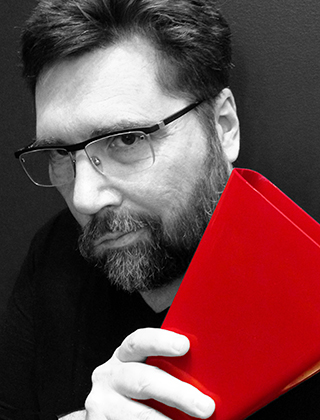 Dan Moore (2018)
Dan Moore (2018)
Moore is professor of music, associate director for instructional support, and percussion area head in the School of Music in the College of Liberal Arts and Sciences. He is an expert in percussion performance, with a specialization in marimba and vibraphone. Widely recognized for his improvisation skills and genre-crossing work, he has been invited to perform on four continents and in 43 U.S. states. He is also an active composer and arranger with more than 30 published works, and a commitment to musical innovation that has led to projects such as his collaboration with UI physicist Craig Kletzing to create a composition based on digital data from Van Allen’s space probes. Professor Moore instructs all percussion majors at the university and directs the Iowa Percussion Ensemble and Steel Bands. He and his students perform widely throughout the state, nation, and world, and won the 2013 Percussive Arts Society World Percussion Ensemble Competition.
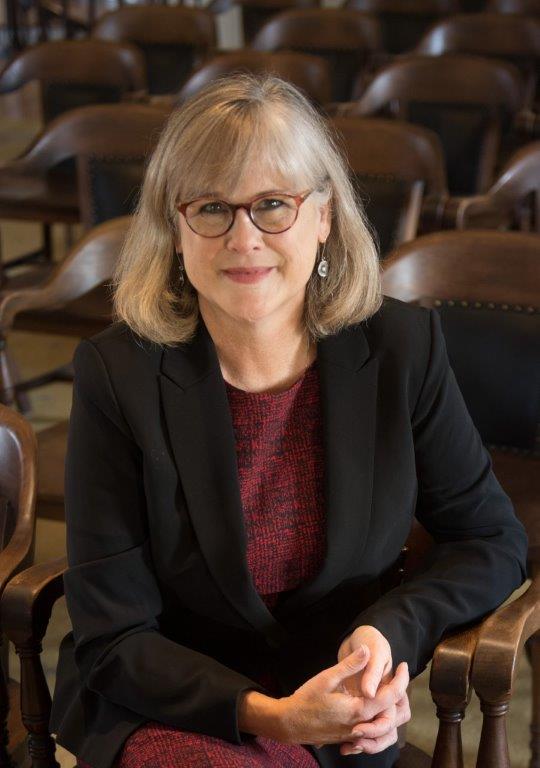 Karen Heimer (2018)
Karen Heimer (2018)
Heimer is professor of sociology and gender, women’s, and sexuality studies in the College of Liberal Arts and Sciences. She is a leading scholar in the area of gender and crime. Her work has been recognized with multiple awards from the American Society of Criminology—the preeminent international organization for the study of crime—for which she now serves as president. She has served on panels and advisory boards for the National Academy of Sciences, the Centers for Disease Control, and many others. Her service to the university includes chairing the Department of Sociology from 2014 to 2017, during which time she significantly strengthened mid-career faculty mentoring and provided leadership in establishing the rapidly growing new undergraduate major in criminology, law, and justice. Dr. Heimer has received several teaching and mentoring awards, including the President and Provost Award for Teaching Excellence.
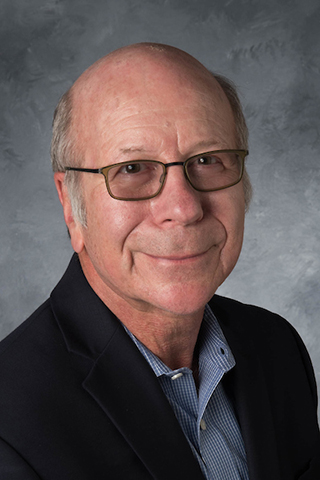 Michael O'Hara (2017)
Michael O'Hara (2017)
A world-renowned expert on the causes and consequences of perinatal depression, O’Hara is a Starch Faculty Fellow in the College of Liberal Arts and Sciences and founding co-director of the Iowa Depression and Clinical Research Center. He has authored or edited several seminal texts on depression and on psychopathology. With a deep commitment to providing students at all levels with the best possible learning experiences, he has taught large General Education courses for many years, mentored undergraduate research, and supervised more than 30 honors theses for undergraduates who have gone on to graduate school. Graduate students he has mentored have earned tenure-track faculty positions at many prestigious universities. His remarkable record of service to the department, college, and university includes serving as department chair from 1994 to 2000, associate dean from 2000 to 2003, and Faculty Senate president in 2008–09. He received the Michael J. Brody Award for Faculty Excellence in Service in 2012.
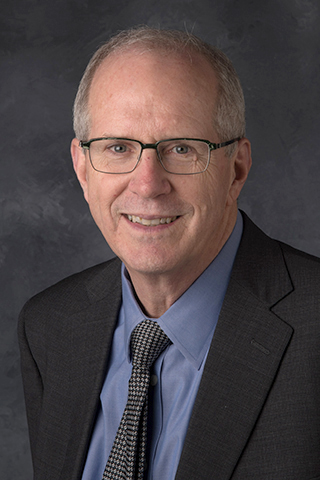 Joseph Kearney (2017)
Joseph Kearney (2017)
Kearney is a creative and successful researcher with a focus on developing virtual-environment technology to study important real-world problems, such as how child and adult pedestrians and cyclists cross roads with traffic. Graduate and undergraduate students working with him in the Hank Virtual Environments Laboratory enjoy a unique interdisciplinary training opportunity at the intersection of computer science and psychological science, with important implications for applied areas such as transportation safety. Kearney served as associate dean for research and development in the College of Liberal Arts and Sciences from 2003 to 2016 and in that role became vital to the flood recovery project, first finding temporary facilities for units affected by the flood of June 2008 and eventually working with campus and external partners to rebuild and reinvent the arts campus. He has also been pivotal in the development of the Public Digital Arts, Digital Humanities, and Informatics clusters. He served as Interim Dean of the College of Liberal Arts and Sciences from July 2018-June 2019.
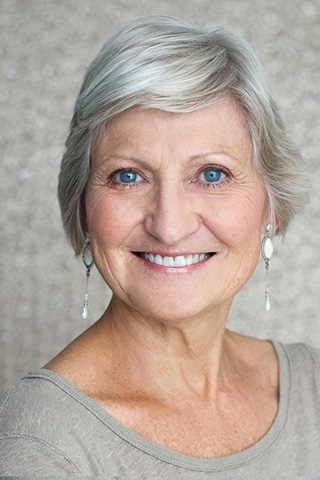 Ruth Bentler (2016)
Ruth Bentler (2016)
Bentler is professor, chair, and director of graduate studies in the Department of Communication Sciences and Disorders; a world-class expert on hearing aid technology; and a tireless advocate for the use of best practices in the field of audiology. Her work has had a profound impact on the lives of individuals who wear hearing aids and on the way audiologists approach fitting those aids. Under her guidance as chair, the department has increased access for mentoring and created service-learning opportunities for undergraduates. Bentler spearheaded the creation of the department’s China Project, now in its 14th year, which brings faculty and students to Chinese orphanages and special-needs schools each May to provide screenings, training, and educational workshops. For more than 10 years, she has organized teams of faculty, students, and volunteers to provide screenings for athletes participating in the Special Olympics. She is a fellow of the American Speech and Hearing Association.
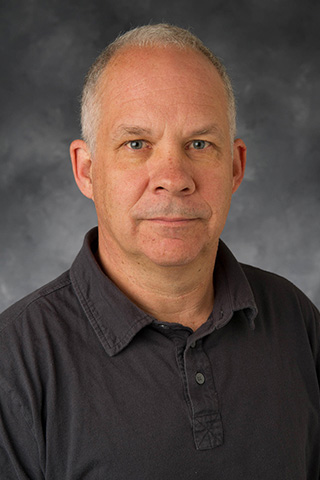 Colin Gordon (2016)
Colin Gordon (2016)
Gordon is F. Wendell Miller Professor of History and a Collegiate Fellow in the College of Liberal Arts and Sciences. An extremely productive scholar focusing on 20th-century American public policy and political economy, he has also distinguished himself in the application of digital technologies to historical research, most notably in data visualization. He pioneered the use of Geographic Information Systems mapping to show the impact of various policies and practices on racial segregation in American cities. As senior research consultant at the Iowa Policy Project, he has written a number of reports on health coverage, economic development, and wages and working conditions, including the biennial State of Working Iowa series. His leadership was pivotal to the campus effort, completed in 2014, to win the Carnegie Foundation’s “engaged campus” credential. Gordon received the university’s Distinguished Achievement in Publicly Engaged Research Award for 2015.
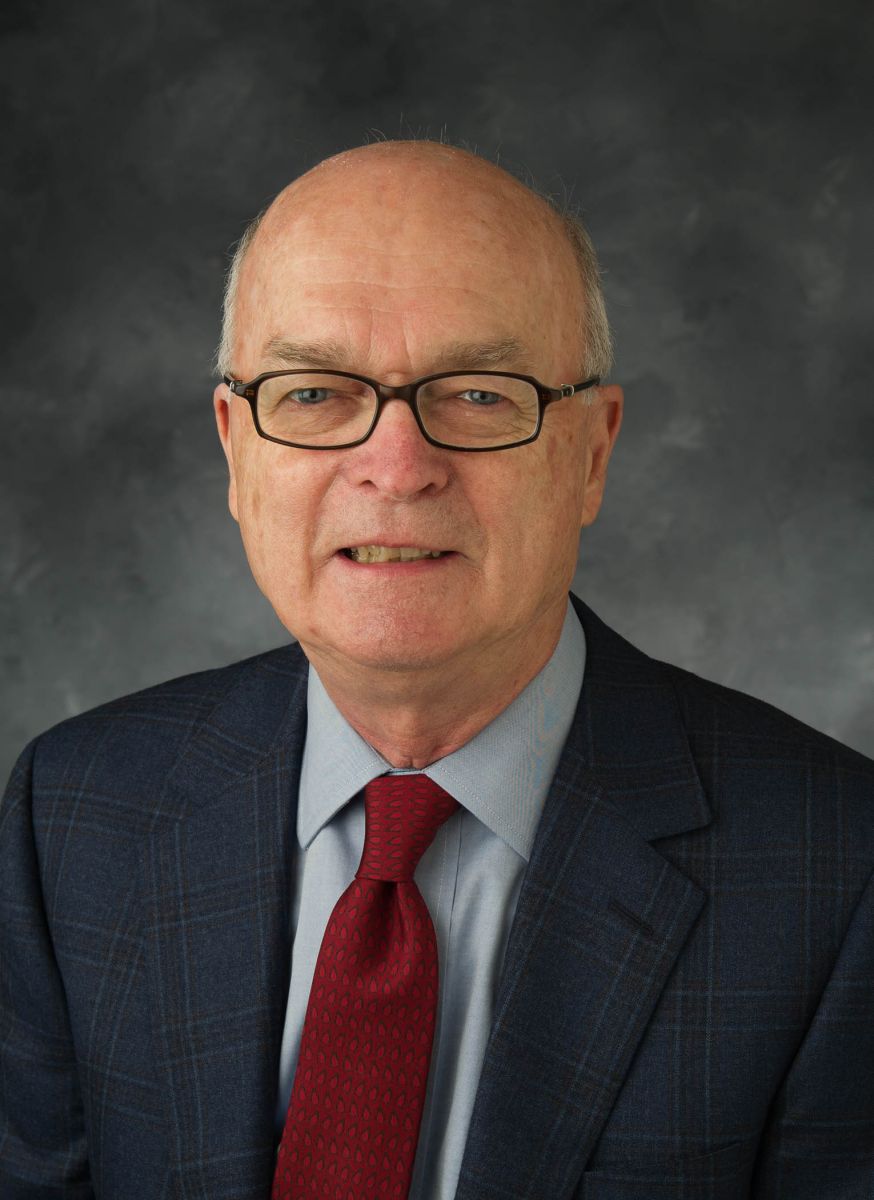 Raymond Mentzer (2015)
Raymond Mentzer (2015)
Mentzer, the Daniel J. Krumm Family Chair in Reformation in the Department of Religious Studies, CLAS, is a renowned scholar of Calvinist studies, a popular undergraduate and graduate teacher and mentor, and former executive officer of the department—a position he held for eight years, during which time he earned the admiration of his colleagues for his administrative skill. Internationally recognized for his scholarship, he has been elected to serve as president of three professional societies and has been invited to present major lectures and seminars for universities in Taiwan, Estonia, Germany, Switzerland, Israel, Scotland, Ireland, and France. He is a generous mentor and advocate for his students, with one recent example of success being the award to one of his mentees of the 2014 Midwest Association of Graduate Schools Distinguished Thesis Award.
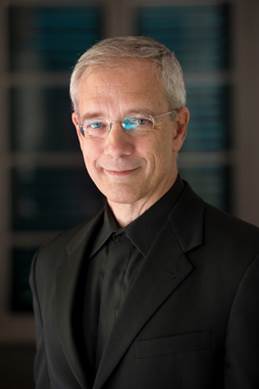 David Gompper (2015)
David Gompper (2015)
The director of the Center for New Music and professor of composition in the School of Music, Gompper has a sustained record of productivity and excellence as a composer, pianist, conductor, teacher, mentor, and leader. His compositions are performed worldwide and have premiered at Carnegie Hall, Wigmore Hall in London, and the Moscow Conservatory. As director of the Center for New Music, Gompper has forged creative alliances that have provided invaluable experiences for students. In 2009 he received an Arts and Letters Award in Music from the American Academy of Arts and Letters, in 2011 he was awarded a Copland House Residency, and in 2013 he received Harvard University’s Fromm Foundation Award and won a residency at the MacDowell Colony. CLAS named him a Collegiate Fellow in 2012.
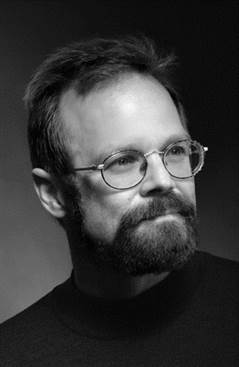 Christopher Merrill (2015)
Christopher Merrill (2015)
The director of the International Writing Program and a professor of English, Merrill is a passionate champion of writing at the University of Iowa and worldwide. A prolific writer of poetry, fiction, nonfiction, essays, and translations, his influence on the literary world also stems from his skill at fostering collaborations and his ability to inspire others. He played a critical role in imagining and realizing the Virtual Writing University project—a resource that brings together the UI’s many prestigious writing programs—and he was a driving force in Iowa City becoming a UNESCO City of Literature (still the only such designation in the New World). He has traveled often and to many countries to establish cultural exchanges with writers and literary scholars. In 2012, President Obama appointed him a member of the National Council on the Humanities.
 John Beldon Scott (2014)
John Beldon Scott (2014)
Scott, Elizabeth M. Stanley Professor of the Arts, has served as director of the College of Liberal Arts and Sciences School of Art and Art History since 2009 and has provided leadership during the difficult period of rebuilding the arts campus devastated by the flood of 2008.
He is a prolific researcher in the field of art and architecture of early modern Italy and of twentieth-century totalitarian regimes, and has earned an international reputation as a pre-eminent scholar in his field. He has been a fellow at the American Academy in Rome, the National Humanities Center, the Institute for Advanced Study, and the Stanford Humanities Center.
He has taught an array of courses at the undergraduate and graduate levels, mentored undergraduates, and has participated in many graduate degree committees. Scott is co-author (with Rodney P. Lehnertz) of The University of Iowa Guide to Campus Architecture and, since 2010, has been chair of the Campus Planning Committee.
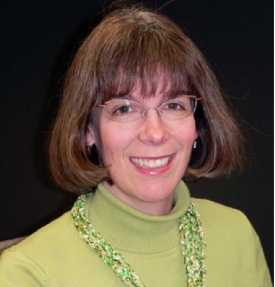 Sarah Larsen (2013)
Sarah Larsen (2013)
Larsen leads an internationally recognized research program focusing on zeolites—porous nanomaterials widely used in catalysis, adsorption and ion-exchange—that have potential applications in a broad range of areas including environmental catalysis, water purification, and drug delivery.
Passionate about bringing the world of nanoscience and nanotechnology to students at all levels, she has developed hands-on activities for outreach in local junior high and high schools; directs a successful undergraduate summer research program in nanoscience and nanotechnology; and has incorporated innovative experiments into large enrollment general chemistry courses, enriching the experience of thousands of UI students annually.
Larsen received the Collegiate Teaching Award in 2010 and the Collegiate Outreach and Engagement Award in 2012. She served as associate director of the UI Nanoscience and Nanotechnology Institute from 2006 to 2011, when she was named co-director. Since 2007 she has been senior editor of the prestigious Journal of Physical Chemistry. In 2012 she was elected a fellow of the American Chemical Society and of the American Association for the Advancement of Science.
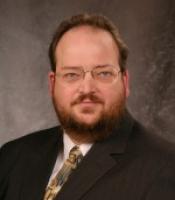 Michael Flatté (2013)
Michael Flatté (2013)
Flatté has made significant contributions to several areas of theoretical condensed matter physics. An established authority on electronic, optical, and magnetic properties of semiconductors, he pioneered the science and application of electron spin (or “spintronics”) in the design of a new generation of semiconductor electronics.
Since 2010 he has directed the Optical Sciences and Technology Center (OSTC), which fosters interdisciplinary collaboration and research with the goal of developing solutions to commercial, environmental, and health problems important to the state of Iowa and the world. His work with the OSTC is just one way he has shown leadership in fostering a cross-disciplinary community of faculty and students who can realize the potential of nanotechnology on the UI campus.
Flatté has taught at all levels, and is a committed mentor to students, postdoctoral scholars, and junior faculty. A 2002 Faculty Scholar and 2006 Van Allen Fellow, he is since 2009 an F. Wendell Miller Professor of Physics. In 2007 he was elected a fellow of both the American Physical Society and the American Association for the Advancement of Science.
James McPherson (2012)
McPherson is an iconic American writer and a legendary teacher and mentor to students in the acclaimed UI Writers’ Workshop. Among the honors he has received for his two collections of short stories and three books of nonfiction are the Pulitzer Prize for Literature, the Guggenheim Fellowship, and the MacArthur “genius” Fellowship. In 1995 he was elected to the American Academy of Arts and Sciences. A beloved mentor to three decades of gifted writers, he has nurtured countless literary careers. He has also served the American literary community through participation on panels for the National Endowment for the Arts, the Mrs. Giles Whiting Foundation, and others; and as a judge for top literary awards including the Pulitzer Prize and the National Book Awards. Generous in service to the community as well as to the university, for years he taught a weekly writing class at an assisted living facility. On multiple occasions he has served as acting director of the workshop.
Jonathan Wilcox (2012)
Wilcox, John C. Gerber Professor of English, has established a reputation as one of the world’s foremost scholars and teachers of Anglo-Saxon literature and culture. He has also established a reputation as an effective and generous leader who consistently steps forward to contribute to the success and well-being of students, colleagues, and programs. Wilcox served as chair of the large and diverse Department of English from 2005 to 2008. He was instrumental in helping the UI Center for the Book navigate challenging budgetary times and develop into the innovative and highly regarded program it is today. He co-created the successful interdisciplinary medieval studies certificate program. A strong advocate for medieval studies and the humanities in general, he contributes actively to the profession and also reaches out to the local community to share his knowledge of medieval culture. He has served on many important collegiate and university committees, including the Faculty Senate and Faculty Assembly and the College of Liberal Arts and Sciences Executive Committee.

Ann Budd (2011)
Budd, the F. Wendell Miller Professor of Earth and Environmental Sciences in the UI College of Liberal Arts and Sciences (CLAS), is one of the world’s foremost authorities on the evolution of coral reefs. Her work to understand how fragile marine ecosystems respond to climate change has proved invaluable to the effort to preserve critically endangered reefs, which are among the most important biodiversity “hotspots” on the planet. She is admired as an excellent teacher of large-enrollment undergraduate and intensive graduate courses alike, and has mentored some of the best paleontology graduate students in the country, many of whom have gone on to highly distinguished careers in the field. Her most recent contributions to the curriculum include new courses for the Sustainability Certificate program that address problems of conservation biology. Her intellectual leadership and outstanding teaching have anchored the department’s paleontology program and helped keep it ranked among the very best such programs in the country.

Thomas F. Boggess (2010)
Boggess is a leading solid-state physicist whose research focuses on the use of short pulses of laser light to measure ultrafast electronic phenomena in novel semiconductors. He develops advanced optoelectronic and spintronic devices. His research has resulted in more than 100 journal publications and two patents. He is working with the U.S. Army on a multimillion-dollar program to develop infrared light-emitting diode arrays that will enable the generation of dynamic thermal images on a chip. Boggess holds a joint appointment with the Department of Electrical and Computer Engineering in the College of Engineering.

Lauren Rabinovitz (2010)
Rabinovitz, Collegiate Fellow and professor of American studies and cinema and comparative literature, directs the Center for Ethnic Studies and the Arts. Her books include a social history of women and a critical study of feminist filmmakers. A pioneer in recognizing the scholarly and pedagogical possibilities of digital technology, her interactive projects are Yesteryear’s Wonderlands, on early 20th century amusement parks, funded by a National Endowment for the Humanities Educational Development Grant, and the coauthored The Rebecca Project, one of the first CDs to use new media as a tool of film analysis for Alfred Hitchcock’s 1941 movie Rebecca. Her current research and teaching focuses on how American food history offers a unique perspective on modernization, mechanization, and American self-identities.

Mark Blumberg (2009)
Blumberg, F. Wendell Miller Distinguished Professor of Psychology in the College of Liberal Arts and Sciences, was recognized as an internationally prominent senior investigator in the area of developmental psychobiology. His primary focus is on the development and function of sleep and other biobehavioral regulatory processes. Blumberg was acknowledged as an outstanding teacher in both undergraduate and graduate classrooms. He is especially well-known among undergraduates and among his colleagues for the large-enrollment introductory courses he teaches, even while conducting a major research program.

Katherine Tachau (2009)
Katherine Tachau has been a member of the History Department since 1985 and is currently Professor of History. Her training as a Medievalist began at Oberlin College (BA in Spanish and Medieval Studies in 1972) and continued at the University of Wisconsin-Madison. From 1979-81, she was a researcher at the Institute for Medieval Greek and Latin Philology at Copenhagen University in Denmark and subsequently held faculty positions at Montana State University and Pomona College before coming to the department. At Iowa, she has become active in both the University’s Center for the Book and the Medieval Studies Program.

William LaRue Jones (2008)
William LaRue Jones, professor and director of orchestral studies in the School of Music in the College of Liberal Arts and Sciences, conducts the UI Symphony Orchestra and Chamber Orchestra. He also created the All-University String Orchestra, which provides a performing outlet for non-major UI string players. He is a highly sought-after clinician and guest conductor for high schools, colleges, music conservatories, professional orchestras, and international workshops. He has served as guest conductor for all-state honors orchestras in 42 states. As director of the graduate program in orchestral conducting, Jones has had particular success in attracting, mentoring, and placing talented female and minority students, who are underrepresented in the field of conducting. In addition to his extensive professional service, he has served on the School of Music's Executive Committee as well as numerous faculty review and mentoring committees.
.jpg)
Craig Kletzing (2008)
Craig Kletzing, professor of physics and astronomy in the College of Liberal Arts and Sciences, is internationally known for his research on space plasmas, which are rarified, ionized gases that make up much of the observable mass in the universe. His emphasis is on the plasmas associated with the Earth's auroras, especially the northern lights. His work has led to one of the largest NASA grants ever awarded to the UI's renowned Department of Physics and Astronomy. The award of approximately $30 million was made for an in-depth study of the Van Allen radiation belts. Kletzing was recognized for his outstanding teaching with a 2006 Collegiate Teaching Award and a 2007 President and Provost Award for Teaching Excellence. He has also maintained a record of extensive service, having served as his department's associate chair and director of graduate studies, as a member of the college's Executive Committee, and on the university-wide Faculty Senate.

Adalaide Morris (2007)
Adalaide Morris, John C. Gerber Professor of English, is a major researcher in the fields of poetry, poetics and more recently, new media. Morris has served on the UI faculty since 1974, where she is a legendary teacher of poetry at every level and has pioneered courses on new media poetics and on poetic communities. Morris served as chair of the Department of English from 1995-99 and on many important UI committees, including searches for two presidents. She has also served as president of the Association of Departments of English.

James Gloer (2007)
James Gloer, Roy J. Carver/Ralph L. Shriner Professor of Chemistry, joined the UI faculty in 1984. His research focuses on the discovery of new antibiotics and potential anti-cancer agents. Gloer's work has been supported continuously since 1989 by grants from the National Science Foundation, the National Institutes of Health (NIH) and other sources. He teaches organic chemistry at both the undergraduate and graduate levels and has supervised 22 doctoral dissertations. Gloer has served frequently on NIH review panels and as a reviewer for numerous other granting agencies and journals. He is a past president of the American Society of Pharmacognosy.

Lee Anna Clark (2006)
Lee Anna Clark, professor of psychology in the College of Liberal Arts and Sciences and former associate provost for faculty, is internationally recognized for her groundbreaking work in the classification and assessment of personality disorders. The Institute for Scientific Information recently listed her among the 250 most frequently cited researchers in the area of psychology and psychiatry. An elected Fellow of the American Psychological Association, Clark joined the UI faculty in 1993 and has taught both undergraduates and graduates. The course she developed for first year graduate students, Introduction to Clinical Research, was in such high demand that she agreed to return to teaching it even while continuing to serve as associate provost. In the latter capacity, Clark was widely respected for her fair and thoughtful leadership. Since returning to the faculty full-time, Clark has continued her service to the university as a member of the Gender Equity Task Force and chair of the Faculty Salary Equity Committee, and she has served the Department of Psychology as chair of the Faculty Diversity Committee and Director of Clinical Training.

Kenneth Cmiel (2006)
Kenneth Cmiel, who died suddenly on Feb. 4, received a posthumous Regents Award for Faculty Excellence. A professor of history and American studies in the College of Liberal Arts and Sciences and director of the UI Center for Human Rights, Cmiel was an influential and creative scholar with a range of intellectual interests. In recent years, he had published groundbreaking research on the history of human rights, and he shared some of those insights as the UI's 2005 Presidential Lecturer. He was a popular teacher and mentor to undergraduate and graduate students alike, and to students from a variety of fields besides history. A member of the UI faculty since 1987, Cmiel served as chair of the Department of History for three years before becoming director of the UI Center for Human Rights. In that role, he collaborated with faculty to create new human rights-centered courses, established new graduate and undergraduate internship programs and devoted months of work to co-authoring a major Department of Education grant proposal to fund a variety of university-wide initiatives with a human rights focus. He was widely known as a generous and exemplary university citizen. The $1,000 associated with Cmiel's award will go to the Center for Human Rights internship program.

Vicki Grassian (2006)
Vicki Grassian, professor of chemistry in the College of Liberal Arts and Sciences, chemical and biochemical engineering in the College of Engineering, and occupational and environmental health in the College of Public Health, is head of a pioneering research program investigating how particles in the atmosphere affect its chemical composition. Her research has generated more than 50 peer-reviewed publications during the past five years alone, and data from her lab are considered essential to current atmospheric chemistry models. She is currently the principal or co-principal investigator on 11 funded grants representing a total commitment to the university of more than $4.5 million. In 2005, she was elected a Fellow of the American Association for the Advancement of Science. A member of the UI faculty since 1990, Grassian is an innovative and respected teacher whose reputation as a caring mentor has attracted a large and diverse group of research students. She helped create the undergraduate degree program in environmental sciences, and she continues to oversee the chemical sciences track of that major, which she developed. Her current service contributions include membership on the executive committees of the College of Liberal Arts and Sciences and the Department of Chemistry, as well as the Faculty Senate and Faculty Council.

Alan MacVey (2006)
Alan MacVey, professor and head of theatre arts in the College of Liberal Arts and Sciences, is an accomplished director, playwright, teacher and administrator who currently serves as vice president of the National Association of Schools of Theatre—the primary accrediting agency of university theatre programs in the United States—and on the Board of the Council of Arts Accrediting Associations. In addition to his directing work at the UI, he has directed professional productions at a variety of venues including the Cleveland Playhouse, the Northlight Theatre in Chicago, the Trinity Repertory Company in Providence, R.I. and the Shakespeare Festival at the Folger in Washington, D.C. A UI faculty member since 1991, for the past 30 years MacVey has also served on the faculty of the Bread Loaf School of English at Middlebury College, which is famous for assembling an impressive faculty from colleges and universities throughout the U.S. and Great Britain. He has directed the Bread Loaf theatre program since 1978, and has served as the artistic director of the program's Acting Ensemble since 1986. Admired as an inspirational and generous teacher, in his 15 years as chair of the Department of Theatre MacVey has recruited a diverse and excellent faculty and student body, and brought many distinguished professional visitors to campus to teach, lead workshops and collaborate with students and faculty. He currently serves on the executive committees of the Division of Performing Arts and the College of Liberal Arts and Sciences in addition to his other service.
.jpg)
Judith Aikin (2005)
Judith Aikin, professor of German and former dean of the College, is an international authority on early modern German literature. She has been a member of the UI faculty since 1975, regularly teaching courses at all levels, from elementary language courses, to core courses in the German major, to general education literature courses for non-majors, to graduate seminars. Her training and mentoring of teaching assistants demonstrates to them on a daily basis how research and teaching are intertwined. In her own research, she has evolved from a scholar of German Baroque drama to a historian of early modern culture at the intersection of religion, gender, and performance. She is the author of four books as well as dozens of refereed articles and book chapters. She served as associate dean for faculty from 1990 to 1992, then as interim dean for a year before becoming dean in 1993. Since returning to the faculty full-time in 1997, she has been elected to the Faculty Senate and Faculty Council and has served on many other committees in her department, in the College, and for the University. Her nominator, James Pusack, chair of the German department, says, “Judy shows her colleagues on a daily basis that in a small department no one can be a prima donna; that every contribution is needed, from offering language learners ways to use their emerging German to administration and faculty governance at the highest level.”
.jpg)
Constance Berman (2005)
Constance Berman, professor of history, is a leading social historian of the Middle Ages. She joined the UI faculty in 1988 and teaches a full range of courses on medieval history, including the first course in the highly enrolled western civilization sequence. Linda Kerber, May Brodbeck Professor of the Liberal Arts and Sciences and chair of the history department, wrote in nominating her, “Connie Berman is a caring and concerned teacher, who sets a standard and role model for us in the department.” As the history department’s director of undergraduate studies (1999–2001), she revamped departmental advising for majors, and she also developed a teaching proseminar for teaching assistants. Furthermore, her contributions as a graduate teacher now have impact on the practices of historians nationally through her service on the American Historical Association’s Committee on Graduate Education (2000–2003), which produced the highly influential report The Education of Historians for the Twenty-first Century. Berman has authored two books on the Cistercian order and edited two more on medieval women and religion, and her work is widely known as stimulating, provocative, and compelling. Her research has received the support of fellowships from the National Endowment for the Humanities and the Guggenheim Foundation. Her extensive service activities on campus include elected terms on the Graduate Council and the Faculty Senate.
.jpg)
Dorothy Johnson (2005)
Dorothy Johnson, F. Wendell Miller Professor and director of the School of Art and Art History in the College of Liberal Arts and Sciences, is one of the world's leading scholars of 18th- and 19th- century art, particularly the career of Jacques-Louis David. She has been a member of the UI faculty since 1987. Her current research examines Romantic Hellenism in French art. An elected member of the board of directors of the College Art Association, she also has been active in planning and chairing sessions for the American Society for Eighteenth-Century Studies. She has been director of the School of Art and Art History since 1995.

Raúl Curto (2004)
Raúl Curto, executive associate dean in the College of Liberal Arts and Sciences and professor of mathematics, joined the UI faculty in 1981. He is an internationally known scholar of the interface between the fields of several complex variables and operator theory, a highly interdisciplinary area of mathematics. He has published more than 75 refereed papers and has had continuous grant support from the National Science Foundation since 1980. He frequently is invited as a distinguished lecturer at conferences and symposia in the United States and abroad, and serves as associate editor of the Journal of Mathematical Analysis and Applications. An outstanding mentor and classroom teacher, he has taught courses at all levels, ranging in size from business calculus lectures with 800 students to advanced graduate seminars. As an administrator, Curto is committed to mentoring and supporting junior faculty and creating opportunities for them to excel as teacher-scholars. He also is a campus leader in attracting and retaining a diverse faculty, staff, and student body. He is a Collegiate Fellow in the College of Liberal Arts and Sciences and a recipient of the University's Catalyst Award.

Peverill Squire (2004)
Peverill Squire, professor of political science, joined the College of Liberal Arts and Sciences faculty in 1985 and is an internationally recognized scholar in American politics and legislative studies. He has published 50 peer-reviewed articles and book chapters, as well as five books. As a Fulbright Distinguished Lecturer in 1999-2000, he was the John Marshall Chair in Political Science at the Budapest University of Economic Sciences. He has served on the editorial boards of six major journals and is the coeditor of Legislative Studies Quarterly and senior consulting editor for the politics section of the Encyclopedia of the Midwest. A recipient of the Collegiate Teaching Award, he is an outstanding mentor and classroom teacher and has supervised 14 doctoral dissertations. He served as chair of the political science department from 1992 to 1995 and chair of the college’s Faculty Assembly in 2003-04. In the months leading up to the 2004 Iowa caucuses, Squire provided history, context, and analysis for hundreds of local, state, and national media outlets. He was named a 2004 Collegiate Fellow in the UI College of Liberal Arts and Sciences.

Mark Arnold (2003)
Mark A. Arnold, professor of chemistry, joined the UI faculty in 1982. His research is highly multidisciplinary, with investigations and applications in biosensor development, biocatalysis, optical spectroscopy, bioreactor monitoring, noninvasive biomedical measurement, and environmental analysis. He and his coworkers have published 125 papers in peer-reviewed journals and symposium proceedings, and have been awarded six patents, including three related to a project that offers hope for pain-free blood glucose measurement in diabetics. Arnold teaches undergraduate and graduate analytical chemistry courses, and frequently incorporates results from his biomedical sensing research program in his teaching. His service efforts include being on the editorial boards of five journals and consulting for four companies. He is director of the multidisciplinary Optical Science and Technology Center in the College of Liberal Arts and Sciences. He is a Collegiate Fellow in the College of Liberal Arts and Sciences.

David Wiemer (2003)
David F. Wiemer, professor of chemistry, joined the faculty in 1978. Wiemer teaches organic chemistry, both at the graduate and undergraduate levels. His internationally recognized research, which focuses on the synthesis and evaluation of medicinally active natural products and enzyme inhibitors, has produced more than 120 publications in chemistry and biochemistry journals. He has received more than 150 invitations to speak at universities, colleges, conferences, institutes, and industries. He has received grants from the National Institutes of Health, the U.S. Department of Agriculture, the Leukemia Society of America, and the Cystic Fibrosis Foundation. He also is a prominent figure in University service and administration, having served on numerous University committees, including the promotion and tenure committee of the College of Liberal Arts and Sciences, the Graduate Council, and the executive committee of the Center for Biocatalysis and Bioprocessing. He has served as interim associate dean of the Graduate College, and DEO of the Department of Chemistry. He is a Collegiate Fellow in the College of Liberal Arts and Sciences.
.jpg)
Philip Kutzko (2002)
Philip Kutzko is a professor of mathematics and Collegiate Fellow in the College of Liberal Arts and Sciences. He joined the faculty in 1974 and is an internationally recognized leader in his field of research, number theory. He has been selected twice as a UI Faculty Scholar and has had continuous support for his research from the National Science Foundation for 30 years, a rare occurrence in mathematics. He has held visiting positions at the Institute for Advanced Study in Princeton and at the École Normale Superiéure in Paris. He has been an invited speaker at an International Congress of Mathematicians, one of the highest honors a mathematician can receive, and delivered the 2004 UI Presidential Lecture. Kutzko is known as an outstanding teacher in all levels of courses, including the challenging large introductory lecture course for business students. He is particularly noted for his efforts to increase the number of minority students who get graduate degrees in mathematics at UI, an effort that has gained national attention. Professor Kutzko has received the University's prestigious Philip G. Hubbard Award for Outstanding Education.

David Soll (2002)
David R. Soll, Carver/Emil Witchi Professor of Biological Sciences, joined The University of Iowa in 1972. His research career, which has given rise to numerous publications and patents, is actually several careers in one. He is a pioneer and leader in the analysis of cell movement, developing computer-assisted methods for four-dimensional analysis of live cells. He has been the principal investigator of an National Institutes of Health-funded motility program project since 1982 and is director of the Keck Dynamic Image Analysis Facility. He also discovered "phenotypic switching" in the infectious fungi, a mechanism basic to fungal pathogenesis. This work, funded by NIH since 1978, has led to new insights into the molecular mechanisms and epidemiology of infection. Soll also developed new methods of treating hog-farm waste. He is director of the National Institute of Child Health and Human Development Hybridoma Bank, which makes valuable antibody reagents available to researchers worldwide at a nominal fee. His teaching has been recognized for excellence at both undergraduate and graduate levels.

